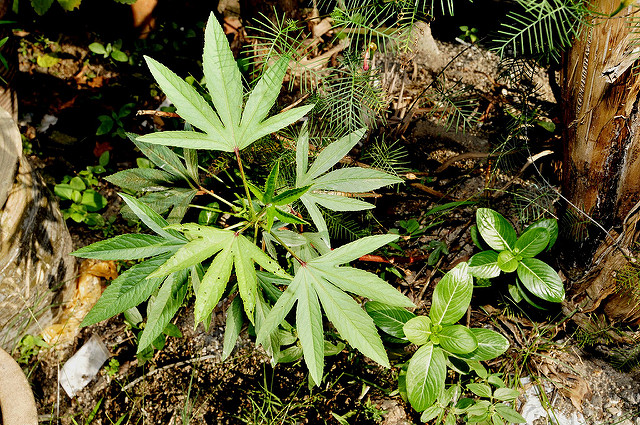
Does Religious Freedom Mean You Can Smoke Pot?
- By Derek Welch --
- 23 Dec 2017 --

MORI is licensed under CC BY 2.0
A New Court Case Challenges Drug Use for Religious Reasons
It’s a question that has plagued the US legislation for decades. At what point does it become illegal for a member of a church who believes in drug use for religious reasons to use those very drugs? This is the question the First Church of Cannabis wants answered as it sues the State of Indiana for prohibiting its members from smoking pot in public.
Of course, the First Church of Cannabis is not the only church to have taken issue with the government’s prohibition of drugs. Before the 1993 Religious Freedom Restoration Act (RFRA) was enacted, a Native American man had sued the government for wrongful termination after his employer dismissed him and did away with his pension after discovering he had used peyote in a religious ceremony. Peyote is a plant with hallucinogenic properties used in the Native American traditional ceremonies to enrich believers’ experience in religion. In 2006, the Union of the Plants won a case against Santa Fe County, granting its members the freedom to use tea with the drug DMI for religious purposes.
The case before the Indiana Supreme Court is whether or not members of the First Church of Cannabis should be allowed to smoke pot in public despite the state’s anti-marijuana legislation.
The church is arguing that by making public use of marijuana illicit, the City of Indianapolis is infringing on its members’ beliefs under the RFRA, that cannabis brings them closer to their true selves and others. The government on its part feels that its goal of protecting citizens’ health from the danger of drug abuse supersedes any religious claim the church might make. It is moving for dismissal of the case on the grounds of the ‘compelling governmental interest’ exemption. It is a case of religious freedom versus regulation.
Religious freedom is a human right, but just how far should it be allowed to go? A man arrested for illegally possessing marijuana claims sovereign citizenship and membership of a church that uses cannabis. A woman beats her 7-year-old church and claims that she was disciplining her child as per her religious beliefs. These are just a few examples of incidences in the US in the past that show why we should be wary of complete religious freedom, without regulation.



















